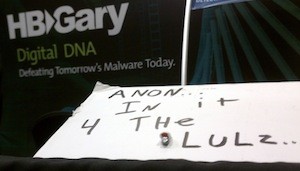Fans, Hackers, and Invisibles
Cory Panshin on January 1, 2014 in Emerging Visions | Comments Off on Fans, Hackers, and InvisiblesAfter posting the previous entry, I kept thinking about the association between horizontalism and creative imagination, and it struck me that the roots of this association can be found in the subculture that grew up around science fiction in the 1930s and early 40s.
When the horizontalism vision was taking shape in the 1930s, science fiction fandom was one of its earliest manifestations. In an era dominated by top-down mass media, fandom was bottom-up, peer-to-peer, and free of any kind of centralized leadership. It was a functioning anarchy in everything but name, being carried on by amateurs who were held together solely by a commonality of interests.
As summarized by Wikipedia, “Science fiction fandom started through the letter column of Hugo Gernsback’s fiction magazines. Not only did fans write comments about the stories — they sent their addresses, and Gernsback published them. Soon, fans were writing letters directly to each other, and meeting in person when they lived close together, or when one of them could manage a trip. In New York City. David Lasser, Gernsback’s managing editor, nurtured the birth of a small local club called the Scienceers, which held its first meeting in a Harlem apartment on December 11, 1929.”
These early relationships flowered over the next decade into an extensive network of clubs, fanzines, and conventions, climaxing with the grandly-named First World Science Fiction Convention in 1939.

 Despite that stinging humiliation, HBGary
Despite that stinging humiliation, HBGary 


